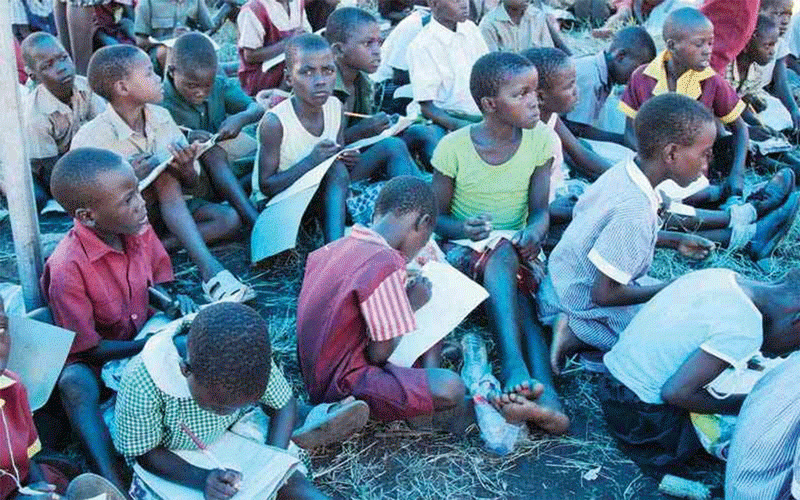
THE government has flagged school authorities, who are scuttling efforts for timeous payment of Basic Education Assistance Module (Beam) funds and risking the education of beneficiaries, NewsDay Weekender has established.
According to Finance, Economic Development and Investment Promotion minister Mthuli Ncube, at least three out of 10 Zimbabwe learners are under the Beam facility, a programme meant to cater for educational needs of the underprivileged.
Ncube said approximately 4,5 million primary and secondary learners in the country or 30% are under Beam.
However, government has been struggling to pay outstanding funds for the programme amid reports that schools had not received ZiG57 million in arrears.
Beam is a government programme introduced in 2001 to pay tuition, examination fees and levies for underprivileged learners.
Some schools have gone for more than two years without receiving Beam funds, according to the National Association of Secondary Heads and National Association of Primary Heads.
And it has since emerged that school authorities were not submitting Beam forms, leading to the delays.
In an internal memo sent to some schools in Magunje, district school inspector Edward Gwanzura summoned 24 school heads to collect Beam forms for submission to the social welfare.
- Awards target married couples
- Budget dampens workers’ hopes
- Govt issues $24 billion Covid-19 guarantees
- Letter to my People:They have no answers for Nero’s charisma
Keep Reading
“You need to put ZiG bank statement and ZiG account numbers.
“This is the third time we are reminding you of the same issue,” Gwanzura said in a memo signed by one Zvarumbira, who is the district remedial tutor for Hurungwe.
The leaked memo drew criticism from observers who accused school authorities of undermining the education of disadvantaged beneficiaries.
“This is not a situation that can be handled in isolation because while we are blaming government for failing to pay the funds in time, the school authorities are also failing to do their duty,” said Derick Rusike, of Hurungwe, in an unsolicited interview after seeing the memo.
“There is a certain reluctance or lack of seriousness affecting our teachers.
“It is unfortunate that these are the same authorities who rush to send the children back home when the money is not paid in time.
“There is also need for the government to start making comprehensive follow ups on the schools that have failed to follow instructions.”
Primary and Secondary Education ministry deputy director for communications and advocacy Patrick Zumbo said the government was yet to establish the reasons for the delays.
“The fact that the district sent some reminders does not necessarily mean that there are delays in Beam disbursements,” Zumbo said.
“It could be that they want this paperwork well ahead of time. I will come back to you.”
Amalgamated Rural Teachers Union of Zimbabwe (Artuz) spokesperson Thembakuye Moyo said the challenges being faced in Beam funding called for a review of the programme.
“Unfortunately, the Zimbabwean government has negated the Constitution and employed a looting mechanism coined as Basic Education Assistance Module,” Moyo said.
“It must be emphasised that Beam has and shall continue to fail to assist learners.
“Beam disbursement is currently seven terms in the negative.
“Beam beneficiaries owe since the third term in 2022.
“It is also worrisome that Beam is associated with inadequacies at application.
“Most schools in rural areas struggle to submit on time.
“Communication from district offices to schools is compromised by connectivity. Network is not available when needed most.”
He said the fund was being affected by financial incapacities, which are playing a pivotal role in late submissions.
“Artuz calls for the withdrawal of Beam forthwith and introduce per capita grant per learner. Artuz also demands the creation of Education Equalisation Fund that will bridge the gap from elite and remote schools,” he said.
Headmasters who spoke to NewsDay Weekender also raised concern over the delays, which are affecting some schools that have at least 30% of their enrolment under the scheme.
School authorities highlighted that delayed payments resulted in lack of implementation of school programmes.
“There are disruption of school operations due to lack of funding, increased administrative burden as the little funds available are channelled towards all administrative costs such as affiliations, which are calculated per head inclusive of students on Beam,” a school head from Makonde district said.
Another head from Zvimba added that failure to disburse Beam funds had a negative impact on school infrastructure projects.
“We are deeply concerned over lack of funding to do repairs and construction of new infrastructure,” the head said.
“It has negative impact on academic performance due tolack of funds to purchase teaching and learning material, among other needs.”
Beam has over the years been seriously affected by underfunding, resulting in some of its supposed beneficiaries failing to access education.
The government has since admitted that there is widespread abuse of Beam funds and late disbursement, acknowledging the mismanagement that has plagued the programme.
Despite not paying for the programme, the government has warned schools against turning away learners on Beam over non-payment of fees, arguing that the Constitution does not allow pupils to be turned away from school.
For years, government has been promising free basic education, but has failed to implement the policy.
In 2020, President Emmerson Mnangagwa signed into law the Education Amendment Act, which compels the State to provide free basic education in line with the provisions of section 27 of the Constitution.










